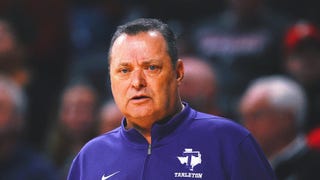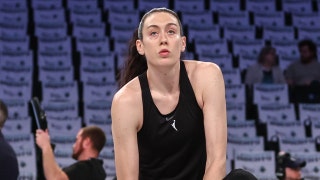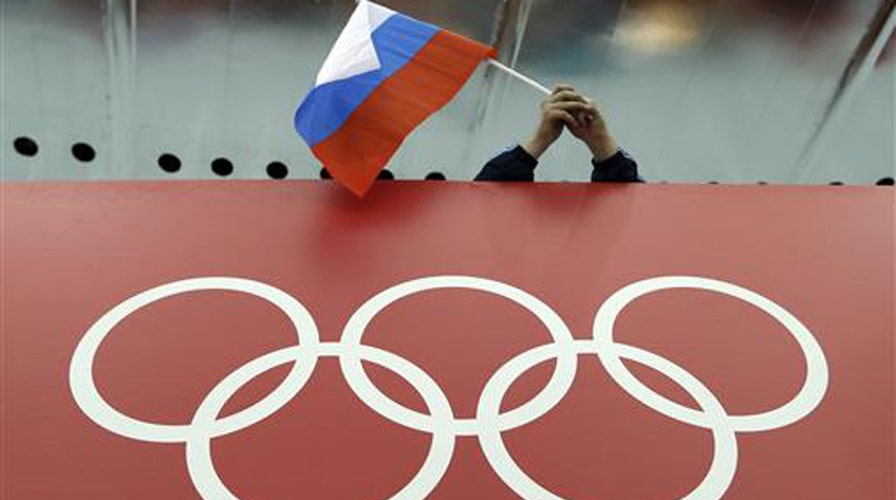Russian track and field team banned from Olympics for doping
Putin vows to fight against the decision; Bryan Llenas reports
RIO DE JANEIRO – There have been boos and scandals for Russia in Rio, but also medals — a lot of them.
A country which arrived under a cloud with a depleted team leaves with 19 gold medals and fourth place in the medal table, leaving fans at home wondering what Russia could have achieved at full strength.
While it wouldn't have been easy to win the eight extra gold medals needed to overhaul China for third place, there are plenty of events where Russians could have made their mark if they hadn't been excluded over allegations of state-sponsored doping.
Here's a look at how Russian stars could have done if the doping scandal had never happened:
YELENA ISINBAYEVA — Russia's two-time Olympic champion in the pole vault was in no doubt that she could have won in Rio if the Russian track and field team had been allowed to compete, suggesting Greek winner Ekaterini Stefanidi would not have a "real gold." Isinbayeva might have a point, since Stefanidi's winning leap of 4.85 meters was 5 centimeters short of the Russian's best result this year.
SERGEI SHUBENKOV — The 110-meter hurdles gold could have been Russia's, with Jamaican winner Omar McLeod's 13.05-second time well within the range of Shubenkov, who ran 12.98 to win the world title in Beijing last year.
MARIA KUCHINA — The women's high jump competition was mediocre, with top contenders on such poor form that better results were actually set by the non-specialists in the heptathlon. Spanish veteran Ruth Beitia was surprised to win gold with a jump of 1.97 meters, which would only have been good enough for fifth in 2012 or seventh at last year's world championships. World champion Kuchina jumped 2 meters last month near Moscow.
TATIANA KASHIRINA — Weightlifting was the only sport to ban the entire Russian team, citing revelations from the World Anti-Doping Agency and a huge number of recent drug test failures. While Kashirina did once serve a ban, she was otherwise eligible for Rio and could have won gold without coming close to her world-record lifts from 2014, which total more than 40 kilograms more than China's Meng Suping managed for Olympic gold in Rio.
ALEXANDER DYACHENKO — The 2012 sprint kayak gold medalist was barred from Rio after being implicated in a WADA report into alleged drug test cover-ups. It's hard to compare times from different competitions due to varying water conditions, but recent performances indicate Dyachenko and partner Yuri Postrigay would have had a shot at defending their title.
ELENA LASHMANOVA — There have been so many drug test failures in Russia's once dominant race walk team that Russia didn't even try to enter Lashmanova and other top walkers for Rio as a gesture of goodwill. Still, it's unlikely that gesture would have been necessary if Russia wasn't already under considerable pressure over doping. Lashmanova, who once served a two-year drug ban, beat Rio gold medalist Liu Hong at the 2012 Olympics, though the Chinese walker has improved since and would have been a tough opponent this time round.









































